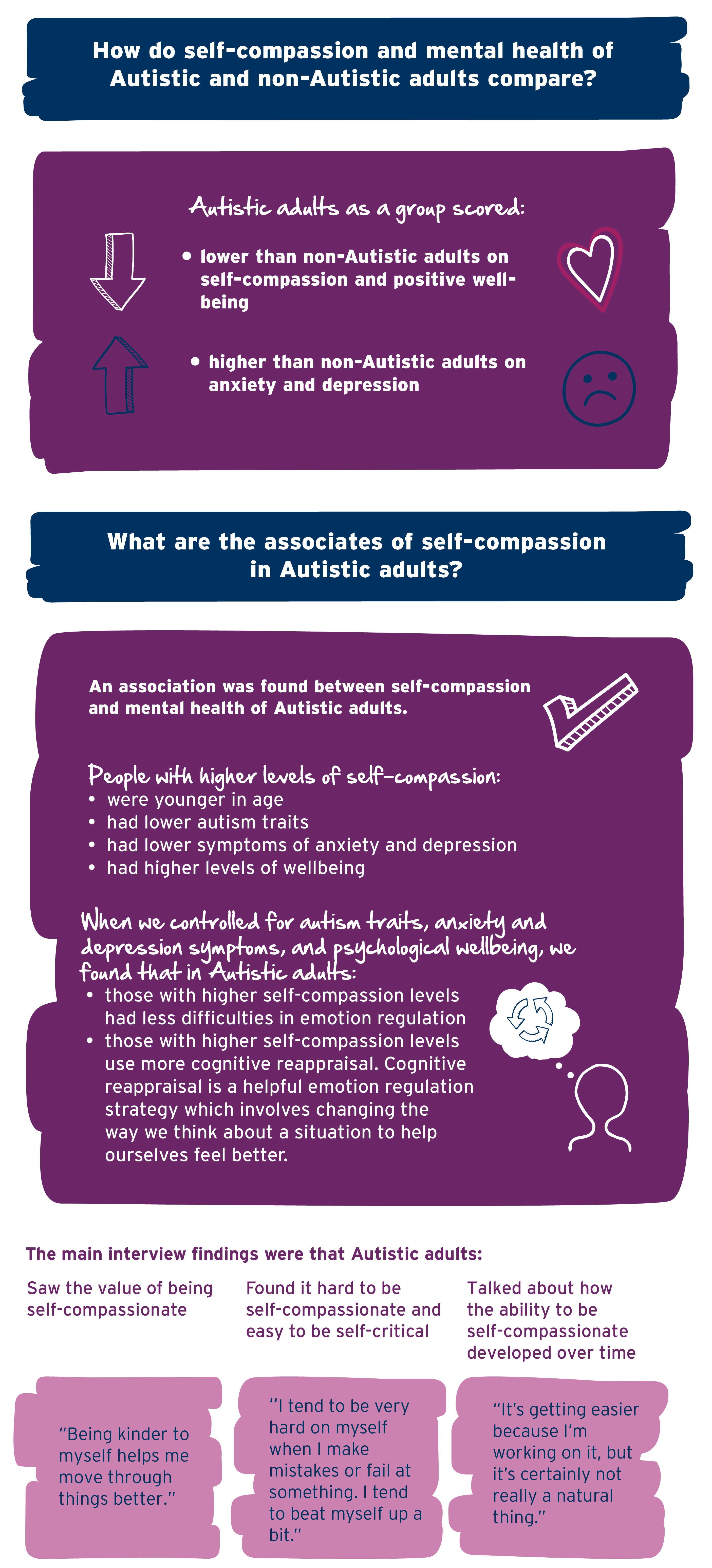Why
Self-compassion is a healthy way of relating to ourselves. Self-compassion involves being warm and understanding toward ourselves when we suffer, fail or feel inadequate, rather than ignoring our pain or being too self-critical.
This study aims to understand whether or not Autistic adults’ capacity to be self-compassionate and ability to regulate emotions impact their mental health and psychological wellbeing.
Is developing self-compassion relevant and important for Autistic individuals to improve mental health?
The research
A 15-minute online survey was completed by 153 Autistic adults (63% female, 27% male, 10% other gender) and 93 non-Autistic adults (82% females, 18% males). They were invited to be interviewed by phone or video call about their experiences around self-compassion. Participants could choose to complete the survey only and not be interviewed.
What we learnt

Making a difference
This is the first research study to explore whether or not Autistic adults’ capacity to be self-compassionate and ability to regulate emotions impact their mental health and psychological wellbeing.
Since people’s self-compassion levels can be improved through practise, developing self-compassion skills is likely to help improve the mental health of Autistic people.
The next step of this self-compassion research will to be investigate if it is possible to improve Autistic people’s mental health through self-compassion-based supports.
Research team
Dr Ru Ying Cai, ARCAP (Lead researcher)
Started
2021
Ends
2021
Funding
Autism Spectrum Australia (Aspect)